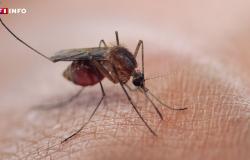While nearly 30% of cancers develop following chronic inflammation, researchers from Inserm and CNRS have been able to identify lymphocytes involved in the onset of these inflammations.
This is a “first”. According to a study conducted by researchers, notably from Inserm and CNRS, and published this Tuesday, August 27 in the journal Nature Immunology, immune cells that cause cancer have been identified.
While approximately 30% of cancers appear as a result of chronic localized inflammation, these lymphocytes involved in inflammatory processes would be responsible for the generation of these cancers.
Double discovery
During their research, the scientists focused on a particular population of immune cells in the intestine, TH17 lymphocytes, which may be involved in the development of inflammatory diseases such as multiple sclerosis or Crohn’s disease.
“We show for the first time that there are in fact eight subtypes of TH17 lymphocytes with distinct roles,” explained Inserm research director Julien Marie.
“One of them has a tumorigenic role, that is to say that when certain activation brakes are lifted, it will contribute to the development of cancers. When in contact with these TH17 cells, the intestinal cells that were healthy until then will become cancerous.”
Why have new cancer cases doubled in 30 years?
It was also found that the tumorigenic population was more increased in patients at high risk of cancer. Or that a protein, called cytokine TGF-β, allowed to inhibit the formation of tumorigenic TH17.
These discoveries are a double reason for hope for researchers. Firstly, they allow us to question the use, on a case-by-case basis, of immunotherapy in patients with cancer, since this practice is known to cause chronic intestinal inflammation. The latter can then be at the origin of the development of another cancer.
Secondly, knowledge of the protein inhibiting the TH17 subtype could allow the development of new preventive therapies for cancer.






